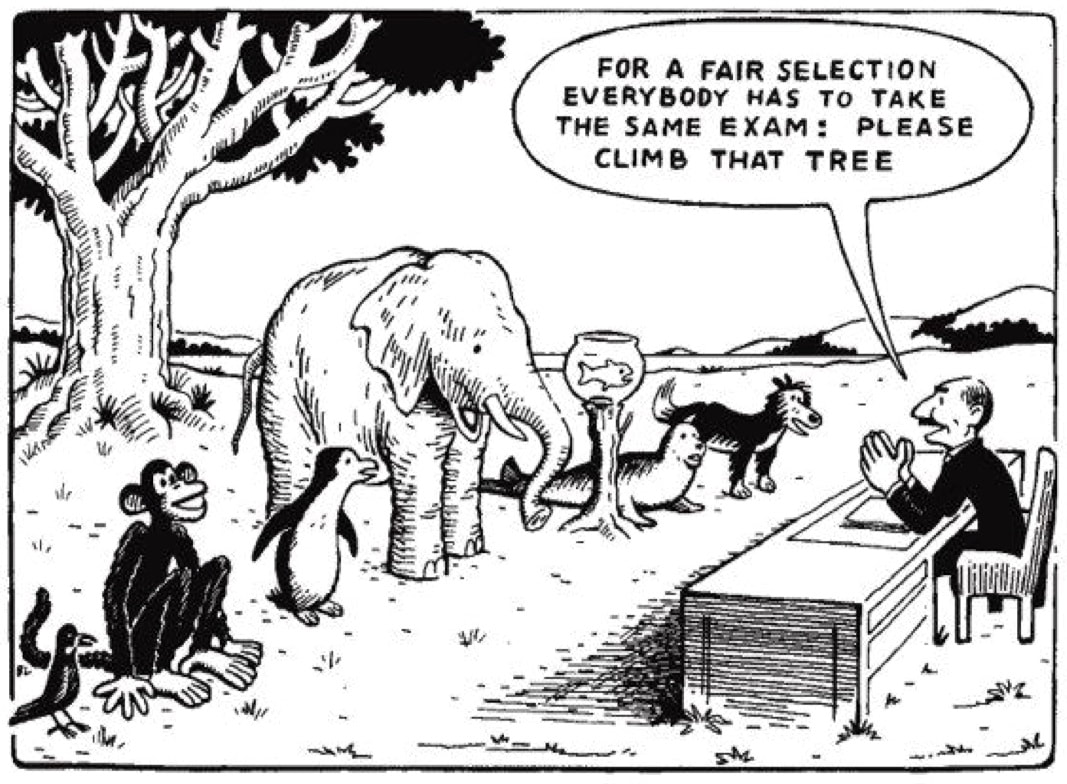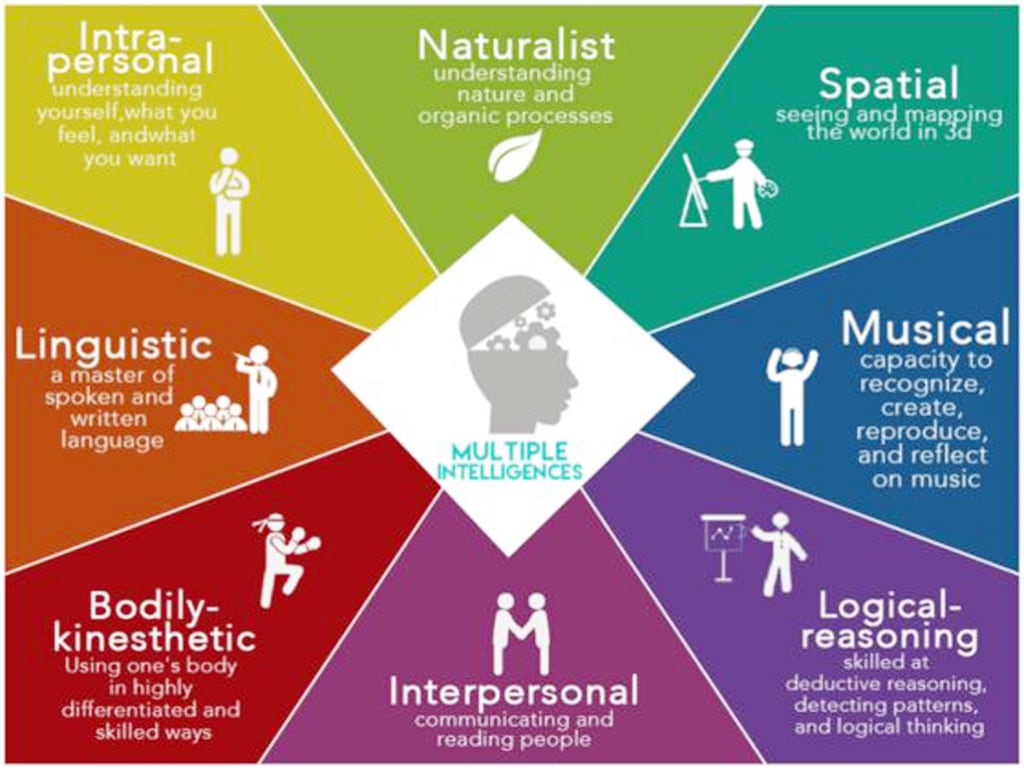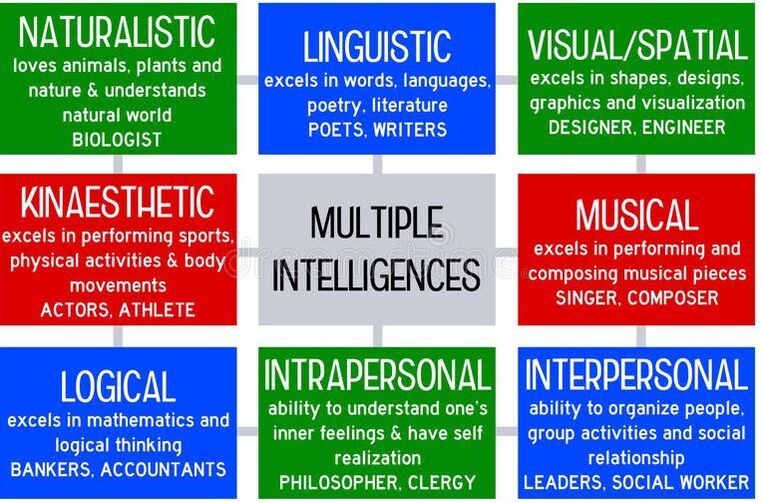Lesson 1 - Intelligence
|
|
This first lesson addresses some of the issues central to the study of epistemology or the theory of knowledge. We begin by asking what it means to know and why some ways of knowing are apparently less valued than others. Students will conduct an assessment of their own learning profile as derived from Howard Gardner's concept of multiple intelligences. (Survey download) Gardner was very critical of the idea that humans have a singular intelligence, typically measured in an IQ test. Instead he argued we have a number of distinct intelligences and that we are likely to be stronger in some areas of intelligence than others. |
Multiple intelligences
|
What do you make of the cartoon?
Albert Einstein is supposed to have said 'Everybody is a genius. But if you judge a fish by its ability to climb a tree, it will live its whole life believing that it is stupid.' What sort of knowledge is valued by schools? What sort of knowledge is neglected? Why? Who decides what is important to know? The multiple intelligence assessment you did in class was quite simplistic. If you'd like to try something more in-depth consider the following: alis.alberta.ca/careerinsite/know-yourself/multiple-intelligences-quiz/ |
For more about the theory of multiple intelligences have a look at the videos above. You can also read more about it at the following websites:
www.simplypsychology.org/multiple-intelligences.html
www.edutopia.org/article/multiple-intelligences-theory-widely-used-yet-misunderstood
www.simplypsychology.org/multiple-intelligences.html
www.edutopia.org/article/multiple-intelligences-theory-widely-used-yet-misunderstood
Finally, below left, one of the most influential education videos in recent years, Sir Ken Robinson's TED talk from 2010. If you've never seen it, it certainly is worth the 15 minutes that some 70m other people have invested. Sir Ken died in August 2020, but I imagine his influence on education will continue to inspire generations of teachers and learners. And below right, Dr. Derek Cabrera talks about how successful students are successful because they are 'good at school', but that being 'good at school' doesn't necessarily mean you'll be good at life. Like Ken Robinson he's worried that school doesn't provide you with the skills and experiences that will help you get on in life.
|
|
|
“You are in the process of being indoctrinated. We have not yet evolved a system of education that is not a system of indoctrination. We are sorry, but it is the best we can do. What you are being taught here is an amalgam of current prejudice and the choices of this particular culture. The slightest look at history will show how impermanent these must be. You are being taught by people who have been able to accommodate themselves to a regime of thought laid down by their predecessors. It is a self-perpetuating system. Those of you who are more robust and individual than others will be encouraged to leave and find ways of educating yourself — educating your own judgements. Those that stay must remember, always, and all the time, that they are being moulded and patterned to fit into the narrow and particular needs of this particular society.”
Doris Lessing, The Golden Notebook
Doris Lessing, The Golden Notebook



